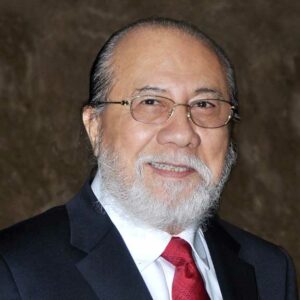Sec. 9, Art. XIII of the 1987 Constitution provides that the State shall, by law, and for the common good, undertake, in cooperation with the private sector, a continuing program of urban land reform and housing which will make available at affordable cost, decent housing and basic services to underprivileged and homeless citizens in urban centers and resettlement areas. It shall also promote adequate employment opportunities for such citizens. In the implementation of such program, the state shall respect the rights of small property owners.
This precept highlights the enormous and widely-encompassing importance of housing and urban development in raising the quality of life of societies and people, and the inevitability of public-private partnership to attain social improvement goals. It therefore mandates government to accord housing policies and issues fundamental focus and, in the process, provide communities all the needed support services that will help citizens thrive as members of functional social units.
This kind of focus is evident in some of our closest Asian neighbors, who, in the last three to four decades successfully pulled themselves along as self-sufficient and stable centers of economic growth.
In Singapore, for instance, where population is 100% urban and total land area is a miniscule 678 square kilometers, public housing programs, particularly the planning and development of new communities, allocation of rental units and resale of units for ownership is managed by a statutory Housing and Development Board, while management of communities is delegated to town councils. Yet, a larger Ministry of National Development is responsible for national land use and development planning to implement a complex and diverse process of developing world-class infrastructure and creating a vibrant and sustainable living environment.
In Malaysia, where 72% of the population resides in urban areas, there exists a Ministry of Housing and Local Government. A Housing and Urban Development bureau provides low income housing and assists in creating new housing in cities for low income families in Thailand. Cambodia maintains a Ministry of Land Management, Urban Planning and Construction, as well as a Ministry of Rural Development. Housing and development-related ministries and departments are likewise present in Brunei, Indonesia, Laos, Vietnam and Myanmar.
In the world’s larger economies, such as the United States, the Department of Housing and Urban Development carries a mission to create strong, sustainable, inclusive communities and quality affordable homes for all. The HUD works to “strengthen the housing market to bolster the economy and protect consumers, meet the need for quality affordable rental homes, utilize housing as a platform for improving quality of life and build inclusive and sustainable communities free from discrimination.”
In the Philippines, the housing backlog currently stands at close to 4 million homeless families, more than 75% of which are informal settlers living in urban centers. To eliminate this backlog and at the same time serve the needs of the growing population within at least 20 years would require a minimum housing production rate of 500,000 units per year.
Hence, the Chamber of Real Estate & Builders’ Associations, Inc. (CREBA) strongly believes that creating the Department of Housing has been, still is, and always will be, a pressing concern that the legislature must finally address to ensure that the critical housing problem is accorded the attention it deserves at the highest level.
The proposed Department of Housing Bill aims to address housing in its totality by encompassing 4 major aspects of land and housing development: finance, production, regulation and administration.
CREBA views that any half-measures, focused only on one or two of these aspects, would be largely ineffective in view of the gravity of the current housing situation and may only result in waste of government funds and effort, if not failed expectations on the part of the millions of homeless.
For those who worry, no new appropriation is necessary. The existing appropriation for HUDCC, including personnel and assets, is transferred to the Department. A simply structured, lean and mean Department would be more appropriate in view of budgetary constraints and in the interest of a higher degree of cost-efficiency and considering that the bulk of operations will be undertaken by the attached agencies already existing.
The proposed Act, while specifically attuned to the needs of the millions of homeless, will nonetheless provide a tremendous boost to the economy if enacted and implemented fully and decisively due to the enormous economic pump-priming impact of housing activity in terms of providing employment and income opportunities for millions, catalysing business activity for at least 68 other industries and generating billions in government revenues from taxes.
With the property market going on an unprecedented and extended boom, the increased spending power of Filipinos working and residing and overseas, and the overall population earning its mark as the 7th largest in Asia and 12th in the world, the creation of a full-fledged Philippine Housing Department is not just a must, but a crucial strategy whose time has come.
Published in the Manila Bulletin May 2012


